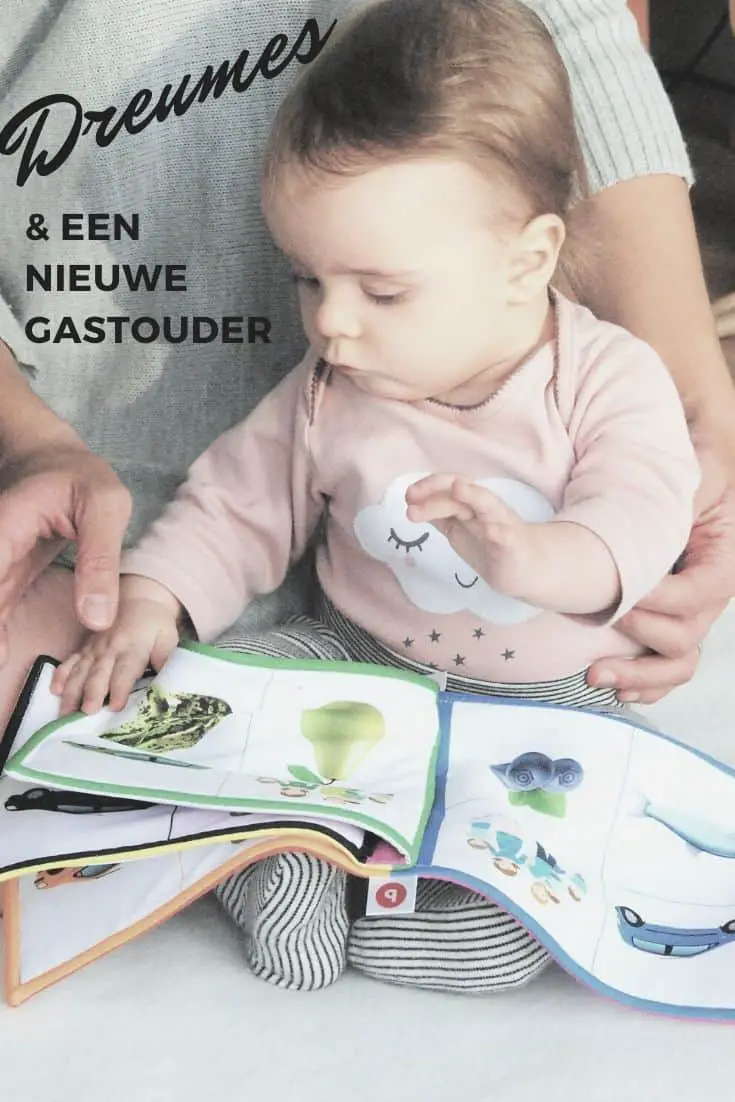Can a baby or toddler miss someone? Separation anxiety & tips

Always something to do for the holidays or rainy day?
Play Choice now has the ultimate activity book collection, with over 60 pages of fun coloring pages and educational puzzles.
Can one baby or toddler miss someone he has known for a large part of his life?
Of course when I say he in this article I mean both a boy and a girl, it's just that I have a boy, so I investigated.
My son is 19 months old and he has been living with a childminder for a long time.
We felt better with a childminder than a childcare because he always has the same person, can build a bond with them and there is no changing of the guard.
It is also a bit smaller with fewer children at the same time. But what happens when “his” childminder is no longer possible, or we move and we have to choose someone else?
Other parents have the same question, for example a mother who comes to live in for a while to help with the baby baby.
Like my mother-in-law who has retired in Spain and will have to return afterwards.
We have not had that situation, but I have often heard from other parents that since their mother went back home, their child was no longer the little angel he was before who hardly ever cried, but a baby who cries most of the day.
Or even worse, a child who has to miss one of his parents due to divorce or death.
Is it possible for a child to miss these important people from the beginning of their life and, if so, how long could it last?

From toddler to toddler activity book collection
Educational games and coloring pages for 3 to 6 years
Your toddler and preschooler will love this e-book, along with the accompanying printables. He or she can play with it at every stage of development, together with mom and dad.
Buy at Bol.comWhat we discuss in this comprehensive post:
From what age can a child miss someone?
I think it is absolutely possible that a toddler at this age can already miss someone and I will also tell you a little more about the development of separation anxiety.
Babies who have to miss their parents from a much younger age can already suffer because they have not received the attention and love they so desperately need and probably a baby start missing an important person from 4 to 7 months.
All babies desire love and attention and if there was another person who offered that for so long, then it is possible that your child is still looking for that person and that attention.
Toddler and separation anxiety
Parting in tears and sometimes accompanied by a tantrum is common during a child's early years.
Around their first birthday, many children develop separation anxiety and become upset when a parent has to leave them with someone else.
While separation anxiety is a perfectly normal part of child development, it can be difficult to see.

If you understand what your child is going through and have a few tricks on hand to help them, you can both get through it.
About separation anxiety
Babies adapt quite well to other caregivers. Parents probably fear being separated from them more than babies yourself!
As long as their needs are met, most will fit babies under 6 months easily adapt to other people.
Develop between 4 to 7 months of age babies a sense of 'object continuity'. They realize that things and people exist even when they are out of sight.
Babies learning that when they can't see mom or dad, it means they're just gone. They don't understand the concept of time, so they don't know that mom is coming back too and may become upset by her absence.
Sleeping, in particular, is often a challenge with separation anxiety. I have even wrote a full article about sleep training here because so many parents experience problems with it.
Whether mom is working in the kitchen, in the next room or in the office, it's all the same for the baby, who might cry until mother is around again.
The same can be developed for other healthcare providers.
Children between 8 months and 1 year old grow into more independent toddlers, but become even more insecure about being separated from a parent.
This is when separation anxiety sets in, and children can become agitated and upset when a parent tries to leave.
The timing of separation anxiety can vary. Some children can pass through it later, between 18 months and 2½ years old. Some never experience it.
And for others, certain stressors in life can cause anxiety about being separated from a parent: a new childcare situation or caregiver, a new sibling, moving to a new place, or tension at home.
How long does it take?
How long separation anxiety lasts can vary, depending on the child and how a parent responds.
In some cases, depending on a child's character, separation anxiety can even last from childhood to elementary school years.
If separation anxiety suddenly appears out of nowhere in an older child, there may be another problem, such as bullying or abuse.
Separation anxiety is different from the normal feelings older children have when they don't want a parent to leave (which can usually be overcome if a child is distracted enough).
And children do understand the effect this has on their parents.
If every time your child cries or cancels your plans and stays at home, or rushes into the room while you were in the other room doing something, your child will continue to use this tactic to avoid divorce.
Being clear and making good rules helps with the separation anxiety towards you, and towards missing other caregivers in their lives.
What do you do if your child misses a parent?
If your child's other parent has completely disappeared from his life, it will be particularly stressful and distressing for him.
Your child may be afraid or suspicious of the world around him. They can become very clingy, or even be afraid and suspicious of you.
You need to support your child in this very difficult time, but also in the months and years to come.
This is important because experiences of loss in a child's life can affect how they deal with relationships in the future.
Be reassuring
Little things you do can help your child feel more secure. The loss of an important caregiver can cause questions or difficult behavior even later in life.
It is therefore important to guide children in this as they grow older.
Start rebuilding their trust in the world and the people around them by doing the following:
- Where possible, tell your child the facts you know. For example, if necessary, tell them: "I don't know where they are."
- Always tell them exactly when they can expect you back when you leave.
- Always let them know if you will be late (for older children)
- Always be where you say you will be.
- Stick to daily routines.
Talk to your child
When your child learns why their other parent left, they can begin to understand what happened.
You can also help by doing the following things:
- Let your child know that their other parents' disappearance was not their fault.
- Let them know you love them.
- Encourage them to talk about how they feel.
- Let them know it's OK to ask questions.
- Don't try to criticize or speak badly of their other parent. Remember that they may come back into your child's life one day if it is not a death.
Increase their confidence
If your child's other parent has moved in with a new partner and their children, they may feel particularly rejected. They may feel that they are not good or worthy enough to earn that parent's love.
You need to counter these bad thoughts and boost your child's confidence.
Encourage your child to think positively about themselves and spend time with them having fun. Let them know how much you love to be a part of their life with both actions and words.
Take care of yourself
When you've been left behind, it's stressful and upsetting for you too. You have to take care of yourself in order to care for and support your children.
Ease the transition from one childminder to the next
Even if the previous nanny may not have been a positive experience, there was still a strong bond with your child because they spent quite some time with the nanny, or childminder anyway.

As many people who bring their children to a childminder, or often call in a babysitter, know, transitioning to a new one can be very difficult for your child.
Sometimes your children are really attached to a caregiver, especially if they have a very warm personality, or if they match the way of giving attention that your child exactly needs.
The more complex issues are how the family's quarters are handled.
Younger children do not understand that the person they went to, or who read, bathed, and cuddled to them 3 or 4 days a week was paid for it.
And a paid employee is someone who can also choose to quit, not because they necessarily want to quit the child.
Almost anyone with the means to hire a nanny or take the kids to a nanny should realize that the nanny, however loved, will leave at some point or they will no longer be able to go there.
Most childminders only do children up to a certain age, after which the children will have to attend a new after school care when they go to kindergarten.
Research shows that children find it difficult to get used to new care providers. The most difficult transition is the first time a child realizes that a childminder, or other important person such as the grandmother, has left.
It disturbs the child's sense of stability.
I have even heard about two sisters, where one of them, when they had to go to another childminder, wondered if her sister would be the next to leave.
She had not yet discovered the boundaries of the family.
Parents, as well as caregivers for that matter, do not want to cause unnecessary suffering to children and of course you do everything you can to avoid such situations.
A childminder or other carer can leave for three reasons:
- the children she took care of are older and go to school
- she finds a better job or moves
- she is not what you are looking for and fires her
All three can be handled smoothly.
If you really want to handle it well, it's best to have the departure known for weeks, if not months, so that the children have time to ask questions and understand why they are leaving.
If you leave well, the babysitter and the children may keep in touch. My brother's children occasionally visit their “Aunt Leen”, for example after school.
If not, at least the children understand that it's not their fault that the caregiver leaves.
How do you bring the departure of a childminder or babysitter?
Parents should especially be able to take a step back themselves and help their children with their feelings.
It is best to talk about what the childminder has done for them:
“She made sure that you had a nice home when mom or dad had to work and could play there. She helped you make new friends to play with and feel comfortable and safe with. Those are all things we will miss. But it is important for “Tante Leen” to help other children now. ”
Guide your kids every step of the way and it could have an aftermath for quite some time.
Children may show behavioral changes for up to six months after a health care provider leaves.
For example, if they are toilet trained, they can deteriorate. When they are calm, they can have tantrums.
A good tip for parents is to encourage their children to draw a picture for a babysitter or childminder they no longer see, even if you do not intend to send the drawings.
Drawing in children uses a different part of the brain that helps them process things without words.
Making goodbyes easier
These tips can help children and parents get through this difficult period:
- Timing is everything: Don't try to start daycare or daycare with an unknown person when your child is between 8 months and 1 year old. That's exactly when the separation anxiety is likely to first appear. If you can postpone the switch to another important caregiver for a while, that would help a lot.
- Practice: Practice being separated from each other and slowly introduce new people and places. If you plan to leave your child with a family member or new nanny, invite that person ahead of time so they can spend time together while you are in the room too. If your child is starting at a new daycare center or kindergarten, be sure to visit it a few times before starting a full-time schedule. Practice leaving your child with a new caregiver for a short period of time so that he or she can get used to the new situation.
- Be calm and consistent: Create an exit ritual where you say a pleasant, loving, and firm goodbye to the person.
As hard as it is to leave a child with a new person while screaming and crying, it's important to trust the caregiver to handle it.
By the time you get in the car, your child has probably calmed down and is playing with other things.
If you are caring for someone else's child who is just missing another caregiver, or simply has obvious separation anxiety, try to distract the child with an activity or toys, or with songs, games, or anything else that is fun.
You may have to keep trying until something fun clicks with the child.
Also try not to name the ex-carer of the child, but answer the child's questions in a simple and clear way and with a focus on the future and how things will work for you from now on.
If intense separation anxiety persists in kindergarten, elementary school, or beyond and is interfering with everyday life, discuss this with your doctor. It could be a sign of a rare but more serious condition known as separation anxiety disorder.
Children with this condition fear being lost from their relatives and are often convinced that something bad will happen. Talk to your doctor if your child has any signs of this, including:
- panic symptoms (such as nausea, vomiting, or shortness of breath) or panic attacks before a parent leaves
- nightmares about divorce
- fear of sleeping alone (although this is also common in children who do not have separation anxiety)
- excessive worry about being lost or kidnapped or going to places without a parent
More articles about self-confidence and the development of your child: Read also why cuddling is so good for you and your child

Always something to do for the holidays or rainy day?
Play Choice now has the ultimate activity book collection, with over 60 pages of fun coloring pages and educational puzzles.
Joost Nusselder, the founder of Speelkeuze.nl is a content marketer, father and loves trying out new toys. As a child he came into contact with everything related to games when his mother started the Tinnen Soldaat in Ede. Now he and his team create helpful blog articles to help loyal readers with fun play ideas.